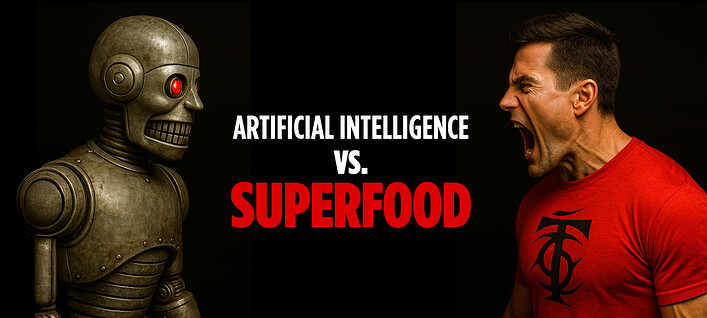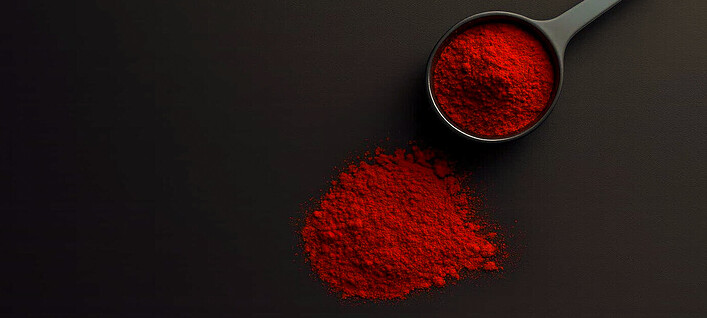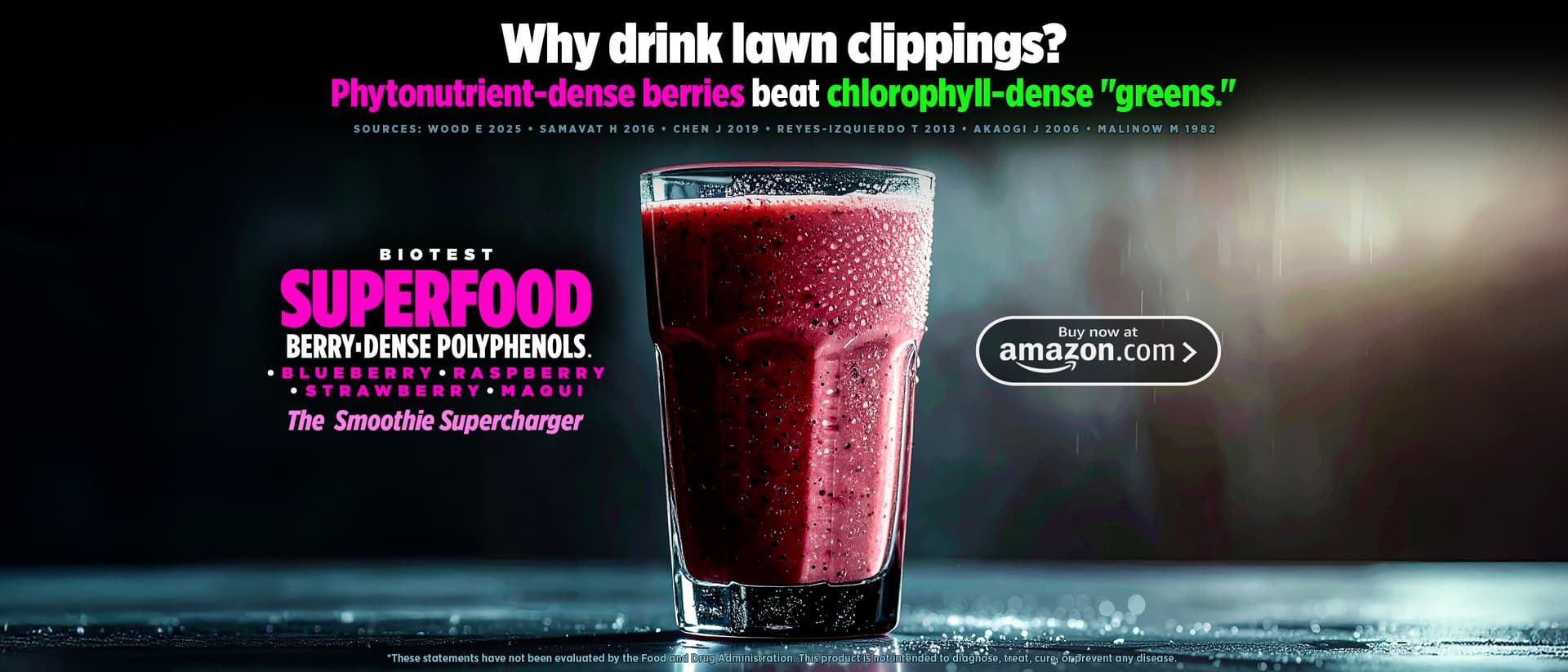We fed 18 greens-supplement ingredients into an AI and asked it for an unbiased evaluation. Here's what happened.
Some people worry that artificial intelligence will make humans dumber. We don't see it that way. Used correctly, AI offloads the repetitive, low-value tasks that eat up mental bandwidth. It frees us to focus on higher-order thinking: strategy, creativity, insight, and synthesis.
Saying AI makes people dumb is like saying calculators ruined math. In truth, they unleashed it. AI isn't a crutch. It's a power tool.
Previously, we used AI to evaluate Igniter, our pre-workout supplement. We fed the ingredients into an advanced AI and asked for an unbiased evaluation. It was like stuffing thousands of scientists into a lab for 10 years and harnessing their brainpower, except it only took the AI a few seconds.
We were happy with the results. The only criticism from the AI? It said, "It's overbuilt for the average gym-goer."
Good! We don't make supplements for the average gym-goer.
So, let's do it again, this time using Biotest Superfood (Buy at Amazon), our blend of 18 freeze-dried extracts from berries, greens, and fruits. Our goal was to improve on the standard "greens" supplement by removing the junk fillers, testosterone-lowering ingredients (like licorice root), and pack it with healthy, hard-to-get "blues" and "reds" along with greens.
We fed the formula into the super-AI and asked for an evaluation.
AI vs. Superfood
We asked the AI to not only evaluate the label and claims, but also to compare the supplement to competing products. Here's what it had to say:
🤖 Summary: Biotest Superfood is one of the best "nutrient insurance policies" on the market. It won't transform your health overnight, but steady use stacks the odds in your favor for resilience, recovery, and long-term vitality.
🤖 Strengths: Clean label, diverse range of plant actives, easy daily insurance policy for nutrition gaps. Strong long-term upside. No red flags, clean ingredient profile. Value: High.
🤖 Weaknesses: Less valuable for people already consuming 12 servings of varied produce daily, though realistically, that's rare. For most consumers, this is a shortcut to getting a wide spectrum of phytochemicals that would be impractical to obtain daily. Compared to related products loaded with stevia, monk fruit, or artificial flavors, Superfood is unusually minimalist and clean, but less appealing to those who care mostly about flavor.
🤖 Comparison to Related Supplements: Superfood discloses actives. Very rare. For transparency, Superfood is the clearest and most honest. Superfood is not a "kitchen-sink" product with 75 ingredients and added multivitamins and probiotics. It contains no filler and no powdered grasses (cheap, high-bulk, low active phytonutrients). Not sweet, not flavored, not trendy – just raw nutrition. For phytonutrient potency, Superfood is the clear winner. However, there is no added multivitamin. Compared to related supplements, Superfood is less expensive per serving.
Our evaluation of the AI evaluation
We're pretty happy with the robot's report, but we take umbrage at a couple of things:
Flavor: It's true, we didn't add sweeteners of any kind to Superfood. Some people just don't want added sweeteners. Superfood tastes like its ingredients and leans towards tasting like a "berry tea" since it does contain berries and green tea extract.
Related products, however, typically add sweeteners. Why? Because they have to. Using cheap filler grasses makes their products naturally taste bitter. We don't add lawn clippings, so there's no need to cover up grassy flavors.
Missing Multivitamin: The AI also hit us pretty hard for not grinding up a multivitamin into Superfood. But that was by design. We've always believed that while multivitamins aren't bad, they don't do much of anything for you.
Research backs us up. Two extensive studies of over 400,000 people lasting 20-plus years found that there was no association between taking a daily multivitamin and a lower risk of death from any cause.
Also, while the idea of a multivitamin is appealing ("take this and you're covered"), in reality, it's not that simple. Vitamins and minerals compete with one another. Calcium can interfere with magnesium and iron uptake. Vitamin A can blunt the effects of vitamin D and vitamin K. In short, multivitamins cram everything together without regard to balance, which backfires.
Competing products add a two-cent multivitamin, charge you more for that convenience, and get to make bolder marketing claims about being an "all-in-one" health supplement. But we think that more knowledgeable ingredient geeks (our kind of customers) know better.
Superfood is what WE want to take. We made it because no other product met our needs. No, it doesn't taste like gummy bears, and it doesn't contain a Centrum Silver one-a-day multivitamin, but that's fine by us. Maybe that's fine by you, too.



